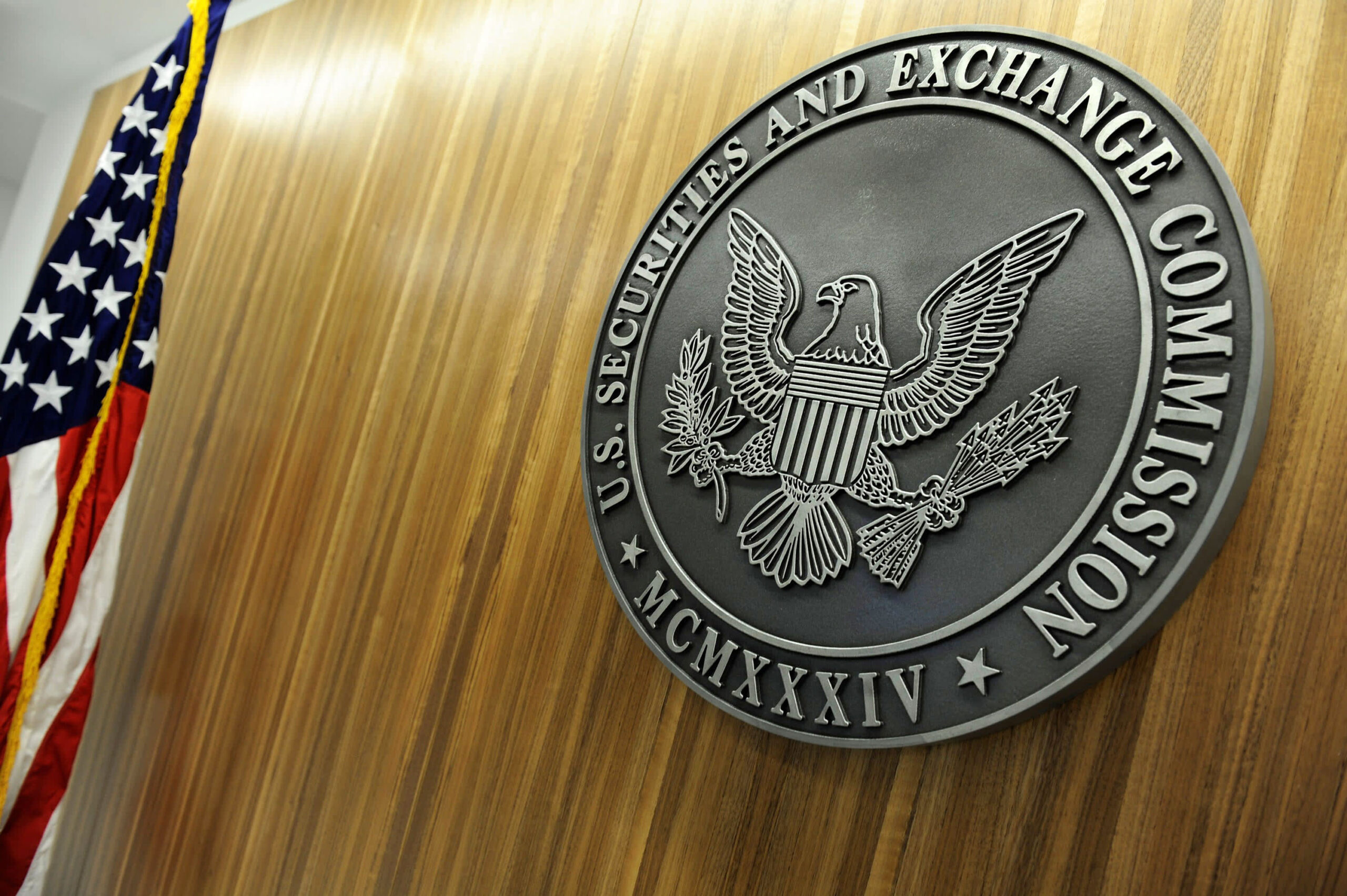Bitcoin ETFs represent new financial innovation that bridges the gap between crypto and regular investing.
Here, we’ll discuss “Why Bitcoin ETFs Are the Biggest Financial Innovation.” let’s look at what Bitcoin ETFs are.
Table of Contents
What are Bitcoin ETFs?

Bitcoin ETFs (Exchange-Traded Funds) are financial products that imitate Bitcoin’s performance, allowing investors to acquire exposure to its value without actually holding the cryptocurrency.
These funds are traded on traditional stock exchanges alongside other ETFs, making them available to both retail and institutional investors. Instead of owning Bitcoin, Bitcoin ETF investors hold units in a fund that monitors its price.
How Bitcoin ETFs Work: Traditional ETFs vs Bitcoin ETFs
Bitcoin ETFs work similarly to Traditional ETFs but only use Bitcoin as the underlying asset. Here’s the breakdown:
Traditional ETFs: Invest in a portfolio of assets such as stocks, bonds, or commodities. They provide diversification, liquidity, and easy access to other markets.
Bitcoin ETFs: Track Bitcoin price movements with either actual Bitcoin holdings (physical-backed ETFs) or derivatives such as futures contracts. Investors purchase shares of the ETF through brokerage accounts, eliminating the requirement for direct crypto management.
Benefits of Bitcoin ETFs for Retail and Institutional Investors
Ease of Access:
Bitcoin ETFs eliminate the barriers of managing private keys, wallets, and exchanges, making them more accessible. Investors can simply trade these funds using their existing brokerage accounts.
Regulatory Oversight:
ETFs are regulated by financial authorities, providing a safe and secure environment for Bitcoin investments.
Reduced Volatility Risk:
Bitcoin ETFs can reduce volatility risk by following Bitcoin through a structured fund. Futures-backed ETFs provide further protection against significant market movements.
Broader Market Adoption:
Bitcoin ETFs enable institutional investors who are concerned about direct crypto exposure to integrate it into Traditional portfolios, leading to further market adoption.
The Evolution of Bitcoin ETFs
Bitcoin ETFs have undergone a significant transition, evolving from an experimental concept to a financial innovation that has reshaped how investors access Bitcoin. This journey marks significant milestones in regulatory acceptance, market adaptability, and worldwide adoption.
Early attempts and rejections
In 2013, the Winklevoss twins submitted the first Bitcoin ETF application to the US Securities and Exchange Commission (SEC).
However, worries about Bitcoin’s price volatility, lack of market maturity, and potential for manipulation led to repeated denials of applications in the following years. Regulators were unwilling to authorize ETFs for a market they saw as extremely speculative and unregulated.
In February 2021, Canada made history by approving the Purpose Bitcoin ETF. This was the world’s first spot Bitcoin ETF, providing direct Bitcoin exposure through a regulated fund.
It marked a key milestone by responding to investor demand while maintaining institutional-grade precautions, such as cold storage for Bitcoin holdings.
US Milestones with Futures ETFs
Although the SEC declined to approve spot Bitcoin ETFs, ProShares will launch the first futures-based Bitcoin ETF in October 2021.
This product provided exposure to Bitcoin price swings through futures contracts, which were deemed safer from a regulatory standpoint. This ETF saw rapid adoption, indicating increased institutional and retail demand.
Global expansion and acceptance
Europe has already adopted Bitcoin exchange-traded products (ETPs), and following Canada’s success, the United States and other markets began to reconsider their positions. In 2023, a US judge ruled in favor of Grayscale in its fight for a Bitcoin ETF conversion, paving the way for future approvals.
Approval of Spot Bitcoin ETFs in the United States.
The tipping point came in early 2024, when the SEC approved multiple spot Bitcoin ETFs following years of deliberation.
These ETFs, which were backed by actual Bitcoin holdings, gave direct exposure while providing the regulatory scrutiny that investors desired. This represented the complete integration of Bitcoin ETFs into the traditional financial system.
Regulatory and Market Challenges
Despite their growth, Bitcoin ETFs have had challenges, including custody issues, concerns about market manipulation, and price volatility. Secure custody solutions and increased institutional interest have helped reduce these barriers.
Impact of Bitcoin ETFs
The evolution of Bitcoin ETFs highlights their importance in mainstreaming crypto. They serve as a link between traditional finance and decentralized assets, providing safer and more accessible investment opportunities for both retail and institutional participants.
Why Bitcoin ETFs Are the Biggest Financial Innovation
Bitcoin ETFs are transforming the financial landscape by merging crypto innovation with the structural familiarity of traditional investment tools. Here’s why they stand out as the biggest financial innovation:
- Simplifying Access to Bitcoin
- Improving Security
- Enhancing liquidity and market efficiency
- Bridge the Gap. Between cryptocurrency and traditional finance
- Encouraging Mainstream Adoption
Simplifying Access to Bitcoin
Many people have been put off by the complexity of purchasing, storing, and safeguarding Bitcoin.
Bitcoin ETFs overcome this barrier by offering Bitcoin exposure via traditional brokerage accounts, allowing individual and institutional investors to easily incorporate Bitcoin into their portfolios. This simplifies access to one of the most volatile yet profitable investments.
Improving Security
Owning Bitcoin directly entails managing private keys and protecting against cyber threats, which is a challenging task for many.
Bitcoin ETFs provide institutional-grade custody, which addresses the technological hurdles of protecting digital assets. This minimizes risk for investors and provides peace of mind.
Enhancing liquidity and market efficiency
By listing Bitcoin ETFs on major stock exchanges, the product boosts liquidity and enables real-time trading. Bitcoin ETFs improve market efficiency and transparency by operating within regulated environments, as opposed to traditional crypto markets with price disparities between platforms.
Bridge the Gap. Between cryptocurrency and traditional finance
Bitcoin ETFs integrate crypto investments into the regulated financial system, making them more appealing to conservative investors. They function as a bridge for institutions and people who see direct crypto investments a risk or noncompliant with standards of regulation.
Encouraging Mainstream Adoption
The approval and broad adoption of Bitcoin ETFs indicate growing regulatory acceptance and trust in crypto as a legitimate asset class. This mainstreaming impact boosts investor confidence, leading to increased adoption and global recognition for Bitcoin.
Bitcoin ETFs are the biggest financial innovation because they combine crypto’s enormous growth potential with the accessibility, security, and regulatory control of traditional finance.
They are not only transforming the crypto investing landscape by minimizing entrance barriers and integrating Bitcoin into traditional markets but also creating a precedent for the future of digital assets in global finance.
Comparison of Bitcoin ETFs and Traditional Bitcoin Investments
Here’s a table comparing Bitcoin ETFs and traditional Bitcoin investments based on key factors:
| Feature | Bitcoin ETFs | Traditional Bitcoin Investments |
| Security | Managed by fund custodians, reducing personal responsibility. | Requires self-custody; security depends on the user’s ability to safeguard keys. |
| Ownership | Indirect exposure through fund shares. | Direct ownership of Bitcoin; full control over private keys. |
| Cost | Includes management fees (0.20%–1.5%) and brokerage fees. | Involves trading fees and possible transfer costs; no ongoing management fees. |
| Market Accessibility | Traded on stock exchanges during traditional market hours. | Available 24/7 on cryptocurrency exchanges. |
| Use Case | Suitable for traditional investors seeking simplicity and regulation. | Ideal for tech-savvy investors who value autonomy and decentralization. |
| Risk | Lower risk; no private key management. | Higher risk due to potential loss of keys or hacks. |
Bitcoin ETFs are excellent for investors looking to bridge the gap between traditional finance and cryptocurrency, with the added benefits of regulatory control and simplified management.
Direct Bitcoin Investments target those who value control, flexibility, and active participation in the crypto ecosystem.
The Impact of Bitcoin ETFs on the Financial Ecosystem
Bitcoin ETFs represent a game-changing transformation in the financial environment, influencing institutional adoption, market dynamics, and global economic effects. Here’s how Bitcoin ETFs are impacting the landscape:
- Institutional Adoption of Crypto
- Increasing Bitcoin’s Market capitalization and liquidity
- The Global Economic Impact of Crypto-Backed Financial Products
Institutional Adoption of Crypto
Bitcoin ETFs offer institutional investors a secure, regulated, and easily accessible entry point into the crypto markets. Unlike direct Bitcoin investments, Bitcoin ETFs do not require custodial wallets or private keys, which alleviates worries about asset security and counterparty risk.
Bitcoin ETFs’ simplicity enticed pension funds, asset managers, and sovereign wealth funds, potentially driving billions of dollars through established financial channels.
Increasing Bitcoin’s Market capitalization and liquidity
Bitcoin ETFs can significantly boost market liquidity by making it easier for institutions to invest.
The structured inflows into ETFs drive steady demand for Bitcoin, reducing price volatility and increasing market capitalization. For example, even a small 1% allocation of U.S. pension fund assets into Bitcoin ETFs could infuse over $300 billion into the crypto market.
The Global Economic Impact of Crypto-Backed Financial Products
Bitcoin ETFs connect traditional finance to the decentralized crypto environment, increasing global acceptance of crypto.
This integration increases regulatory clarity, transparency, and investor confidence. Over time, the broad adoption of Bitcoin ETFs could result in innovative crypto-backed financial products, enabling broader use cases in the global economy.
Challenges facing Bitcoin ETFs
Bitcoin ETFs have created new avenues for investors to obtain exposure to cryptocurrencies, but they suffer a number of fundamental challenges that impede their development and adoption. Here is a breakdown of the major challenges:
Regulatory uncertainty
Bitcoin ETFs have received persistent scrutiny from regulatory agencies such as the United States Securities and Exchange Commission (SEC) and other global regulators. Concerns include potential market manipulation, poor investor protections, and custody risks.
These challenges have delayed approvals, particularly for spot Bitcoin ETFs in the United States, and created a difficult environment for Bitcoin ETF providers to navigate regulatory frameworks.
Market Manipulation Risks
Bitcoin’s decentralized structure, combined with the concentration of big holdings by a few entities (“whales”), can lead to price manipulation. This presents a challenging scenario for Bitcoin ETFs, as regulators are concerned about guaranteeing fair market operations and avoiding volatility implications.
Technological vulnerabilities
Bitcoin ETFs are based on blockchain technology, which, while innovative, is still maturing. Network forks, loss of private keys, and reliance on internet access all pose issues about long-term reliability and operational security.
Environmental concerns
Bitcoin’s significant energy use for mining is under regulatory scrutiny. Environmental concerns could hinder Bitcoin ETF growth, specifically if ESG (Environmental, Social, and Governance) factors become increasingly relevant in financial markets.
Competition among ETF providers.
With an increasing number of Bitcoin ETF proposals, competition between providers heats up. Differentiation based on fee structures, liquidity, and fund performance will be crucial in shaping market dynamics and appealing to investors.
Global Economic and Policy Impacts
Different jurisdictions have differing views on Bitcoin ETFs. While nations like Canada and Europe have adopted Bitcoin ETFs, regulatory divergence worldwide makes it challenging to ensure uniform adoption and investment practices.
These challenges indicate the complexity of incorporating Bitcoin ETFs into the larger financial sector. Addressing these concerns through regulatory clarity, technological innovation, and investor education will be critical to the future growth of Bitcoin ETFs.
Future Outlook for Bitcoin ETFs
The future of Bitcoin ETFs is poised to profoundly impact the financial environment, with multiple trends and implications highlighting their transformative potential.
Adoption Rates & Institutional Participation
Bitcoin ETFs are intended to drive institutional adoption. Leading financial institutions such as BlackRock, Fidelity, and Franklin Templeton are supporting these products, indicating a rising confidence in their market potential.
These institutions view ETFs as a regulated way for investors to obtain Bitcoin exposure without the complications of direct cryptocurrency ownership.
Retail investors, led by wealth managers, are expected to steadily increase their allocation to Bitcoin ETFs. Even a small 1-2% allocation at scale could greatly boost Bitcoin’s market capitalization, highlighting the product’s utility as a bridge between traditional finance and cryptocurrency.
Innovations in ETF structures
Future Bitcoin ETFs might employ diversified strategies, such as incorporating other cryptocurrencies or combining Bitcoin exposure with ESG (Environmental, Social, Governance) criteria.
This evolution can accommodate a greater range of investor preferences while also resolving concerns about Bitcoin’s environmental impact.
Furthermore, cost reductions and enhanced ETF structures could make these products more enticing, especially as providers vie for market share.
Economic and Market Ripple Effects
Bitcoin ETFs could lead to massive liquidity inflows into the cryptocurrency market, stabilizing prices and lowering volatility over time. By legitimizing Bitcoin within regulated financial frameworks, Bitcoin ETFs could push governments and institutions to explore other blockchain-based innovations.
Globally, Bitcoin ETFs offer the potential to democratize access to Bitcoin investments, particularly in regions where direct cryptocurrency trading is prohibited. This inclusion could strengthen Bitcoin’s position as a global asset class.
Potential challenges
Despite the optimistic prognosis, concerns about regulatory delays, market manipulation risks, and rivalry among ETF issuers could impact how fast and successfully Bitcoin ETFs are adopted.
Bitcoin ETFs represent a watershed moment in the cryptocurrency ecosystem since they have the ability to smoothly incorporate digital assets into the traditional financial system.
Their trajectory is expected to impact Bitcoin’s role in global markets, indicating a shift toward broader crypto acceptance. As innovation continues, Bitcoin ETFs may play an important role in determining the future of digital finance.
Conclusion
Bitcoin ETFs mark a pivotal point in the evolution of global finance, combining cryptocurrency’s revolutionary potential with the stability and structure of traditional financial instruments.
Their influence is likely to define the future of investing, making them an important innovation to watch in the coming years.
For anyone interested in opportunities that Bitcoin ETFs offer, now is the time to explore their benefits. Consult with financial experts to see if this innovative investment tool is a good fit for your goals.



